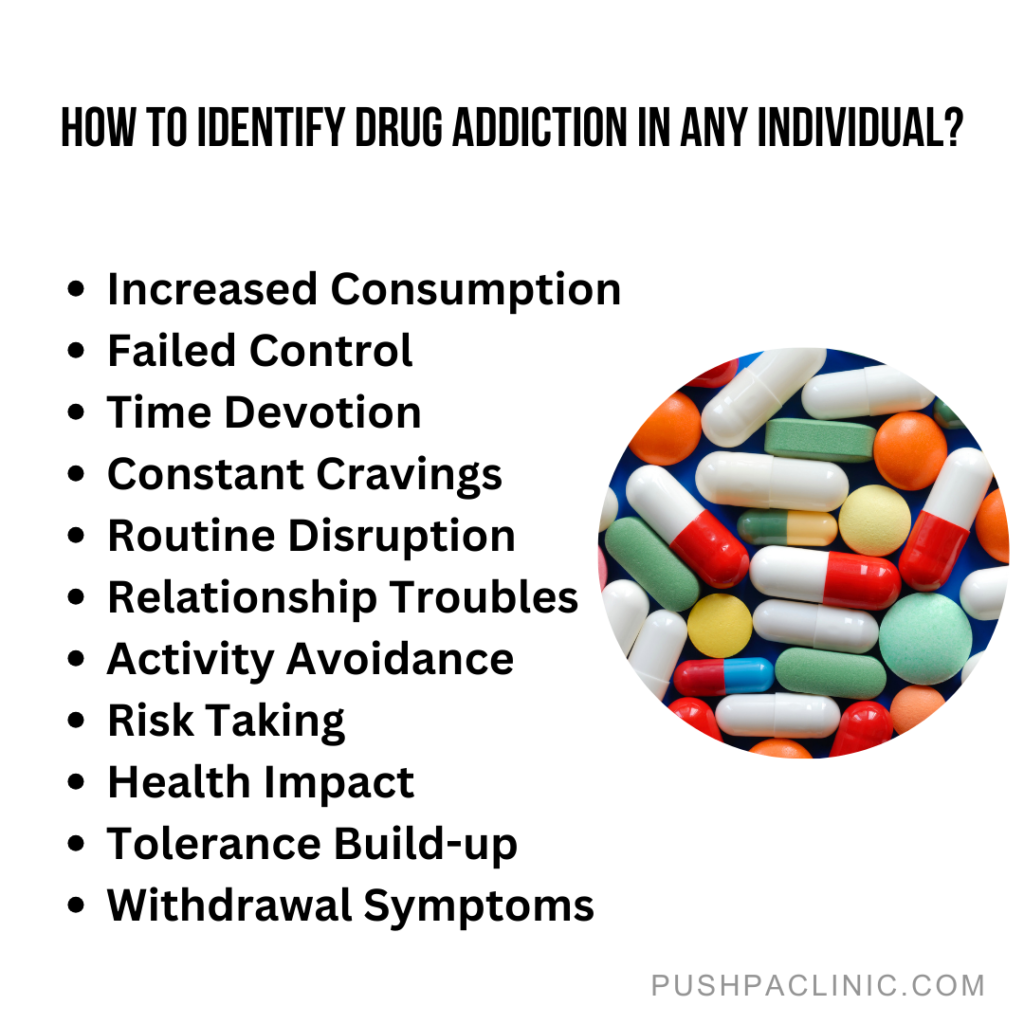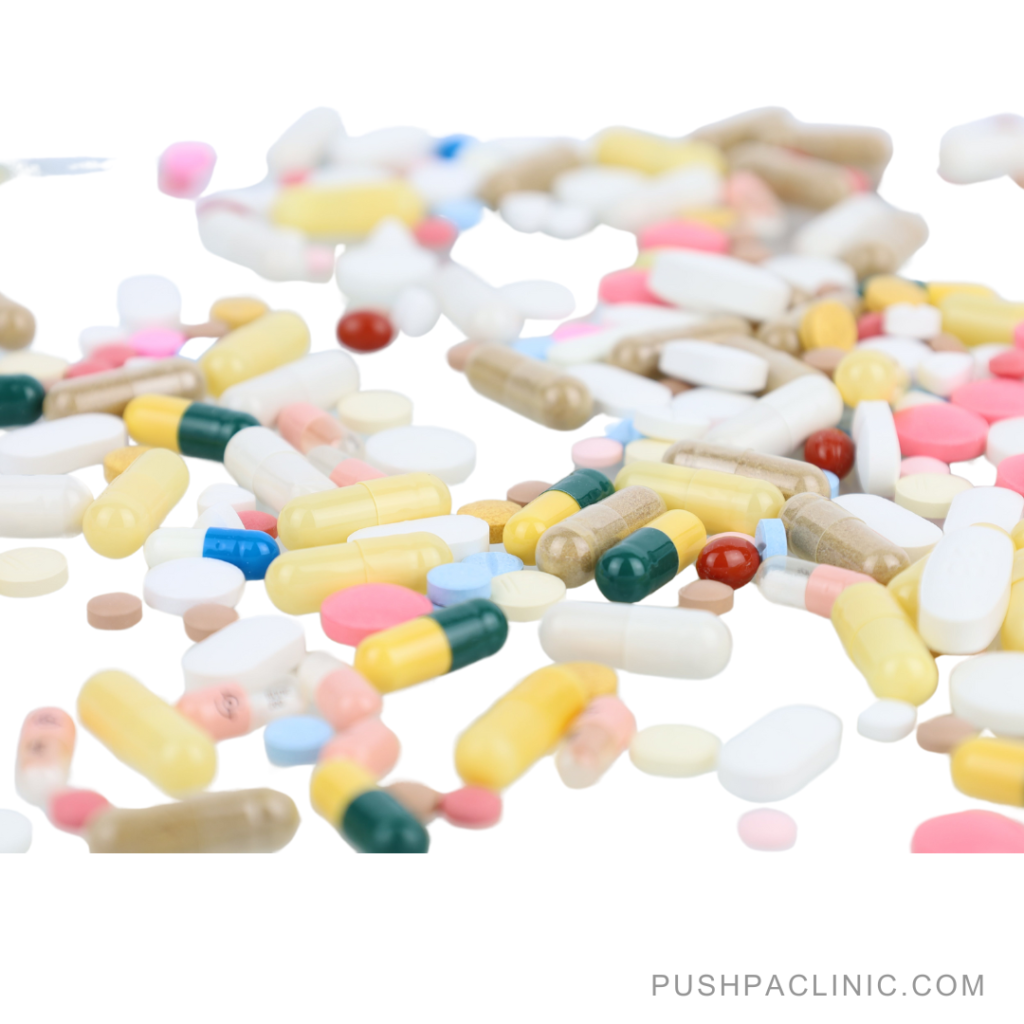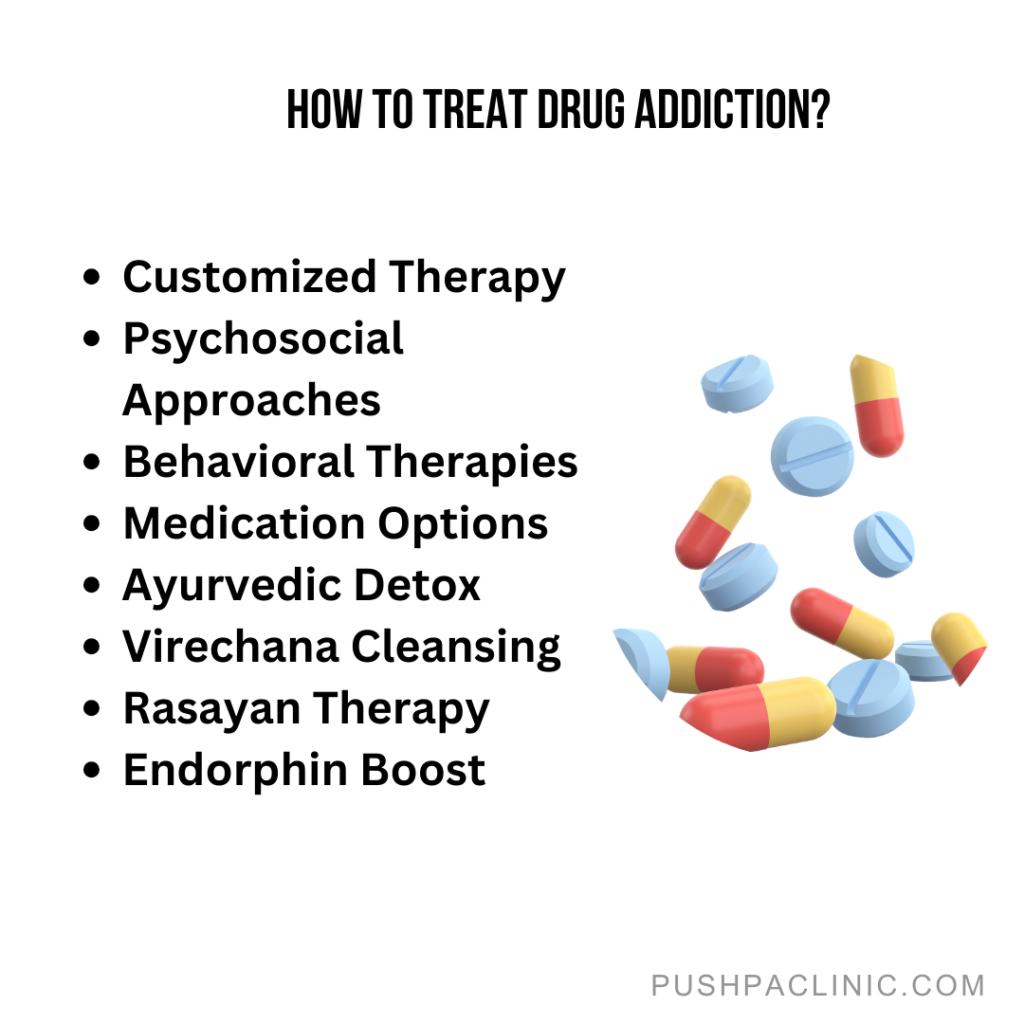What is Drug Addiction?
A brain disorder that relapses over time and causes medical, psychological, and social problems called addiction. Addiction to drugs is similar to other disorders. Both disturb the regular, normal activity of an organ in the human body, have major adverse effects, and are, in many circumstances, easily avoided and treated. If not addressed, they may continue for a lifetime and even lead to deaths.
Addiction to drugs is a disorder that impairs an individual's mind and behavior. An individual might develop an obsession with a particular legal or illegal substance. Certain drugs have the potential to lead to addiction. The dependency progressively develops when the person continues to use the substance regardless of the negative effects it produces. The drugs nicotine, marijuana, and alcohol are widely misused drugs in modern times.

How to Identify Drug Addiction in any Individual?
The indicators that follow are the most typical signs that someone is using or abusing drugs or alcohol.
- Consuming or drinking in larger quantities or for longer periods of time than intended.
- Consistently desiring or failing to reduce or control one's use of drugs or alcohol.
- Devoting a significant amount of time to the acquisition, usage, or recovery from drug or alcohol use.
- Craving, or the urge to use drugs or alcohol.
- Consistent drug or alcohol usage that disrupts normal routine.
- Taking substances such as alcohol or drugs despite the fact that it causes ongoing relationship troubles.
- Avoiding or limiting activities due to drug or alcohol use.
- Undertaking risks, such as relationships or driving while intoxicated.
- Frequently using alcohol or other substances, despite the fact that it causes or exacerbates bodily or mental disorders.
- Building tolerance, or a desire to use additional alcohol or drugs to achieve the comparable impact. Alternatively, consuming the same amount of drugs or alcohol but experiencing a different result.
- Experience symptoms of withdrawal when not utilizing drugs or alcohol. Alternatively, you could use alcohol or another substance to avoid experiencing such effects.

Diagnosis of Drug Addiction
Clinical symptoms are frequently determined by the substance, frequency of usage, and time following last use, and can involve weight loss, persistent tiredness, redness in the eyes, minimal care about cleanliness, laboratory findings, sudden fluctuations in the heart rate or elevated blood pressure, anxiety, depressive symptoms, or sleep issues.

How to treat drug addiction?
It is critical that the one who provides customized therapy, which may include behavioral therapies and drugs, to each individual's particular combination of diseases and symptoms. This ought to incorporate the individual's age, the abused substance, and the unique psychological disorder.
1. Psychosocial therapy: Several behavioral approaches have shown potential in addressing individuals who have both substance abuse and psychological disorders. Behavioral approaches may be recommended on their own or in conjunction with drugs by medical professionals. This may include talk therapy, community based treatments and a few more types of behavioral therapies.
2. Medication: Successful medications exist to treat specific addictions and alleviate the side effects of numerous psychological conditions. Certain medications might be effective in curing several illnesses.
3. Natural ways of treatments: Traditional Ayurvedic treatments for addiction to drugs include Panchakarma therapy, which detoxifies the body. This is carried out using various oils and plants according to traditional customs and practices, which aids in getting rid of unfavorable circumstances. Virechana cleanses the gastrointestinal tract as well as the blood by removing toxins.Virechana therapy uses plants and oils. Rasayan therapy works primarily on the premise of conversion and energy conservation that enhance both our physical and mental features, improving our body's natural metabolic process while also strengthening the functioning of the brain and immune system. Substances in drugs taken by drug users have been shown to create chaos on their mental health throughout the rehabilitation process. By engaging in yoga and other forms of exercise, a substance abuser could produce endorphins compounds in the brain, which would be quite beneficial in achieving appropriate clarity of thought.

